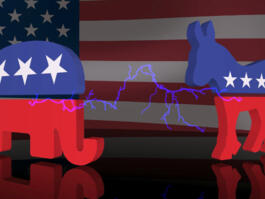Hunter Biden: Most Voters Think His Father Profited From Foreign Deals
While President Joe Biden has denied involvement in his son Hunter’s foreign business dealings, most voters don’t believe the president’s denials.

While President Joe Biden has denied involvement in his son Hunter’s foreign business dealings, most voters don’t believe the president’s denials.

Twenty-five percent (25%) of Likely U.S. Voters think the country is heading in the right direction, according to a new Rasmussen Reports national telephone and online survey for the week ending July 14, 2022.

The 2024 presidential election is more than two years away, but the jockeying has begun among those contending for the most powerful job in the world. An incumbent president typically is the odds-on favorite, although there have been recent exceptions named Carter, Bush, and Trump.

Even many voters who call themselves “pro-choice” on the issue of abortion have concerns when underage girls are involved.

In surveys last week, this is what America told Rasmussen Reports...

Could America's Founding Fathers see far, some 234 years, into the future? In declaring independence and fashioning a constitution, they were certainly trying to do so. And, in some cases, they succeeded. Consider this 78-word sentence written by James Madison and published as part of "Federalist 63" on March 1, 1788:

At the NATO summit in Madrid, Finland was invited to join the alliance. What does this mean for Finland?

Are children seeing stuff in movies they aren’t ready to see? Most Americans think so.

An overwhelming majority of voters believe America is the best country in the world, even though many of them believe the country to be “systemically” racist and sexist.

The U.S. Constitution is overwhelmingly admired by American voters, but most Democrats believe our national charter is tainted by racism and sexism.


The Rasmussen Reports Immigration Index for the week of July 4-7, 2022, decreased to 88.7, down more than three points from 90.8 two weeks earlier.

While a majority of American voters still have a favorable opinion of the U.S. Supreme Court, Democrats have turned against the court and would support radical changes to the institution.

Remember how the world, especially the American media, fawned over former German Chancellor Angela Merkel?

When President Joe Biden retired in Rehoboth Beach on Saturday night, he likely did not expect to find a severed horse's head under his bed covers.

Nineteen percent (19%) of Likely U.S. Voters think the country is heading in the right direction, according to a new Rasmussen Reports national telephone and online survey for the week ending July 7, 2022.

Russia’s invasion of Ukraine has captured nearly all of the eastern Donbas region, but American voters don’t believe Ukraine should be willing to give up territory in a negotiated peace with Russia.

The 2022 midterm elections are now 123 days away, and Republicans have an eight-point lead in their bid to recapture control of Congress.

The 2022 midterm elections are now 116 days away, and Republicans have an eight-point lead in their bid to recapture control of Congress.

In surveys last week, this is what America told Rasmussen Reports...